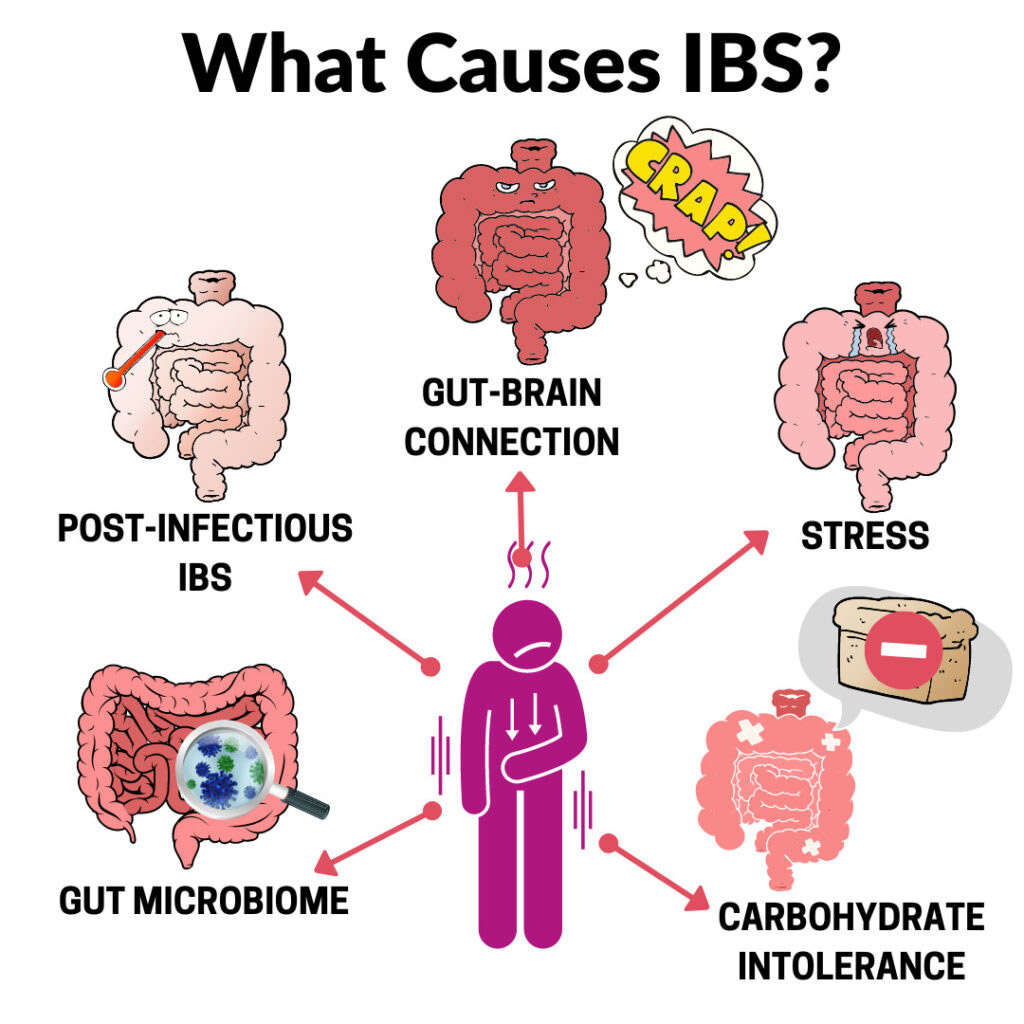Irritable Bowel Syndrome (IBS) Treatment: A Comprehensive Guide to Managing Digestive Health
Irritable Bowel Syndrome (IBS) is a common yet complex gastrointestinal disorder that affects millions of people worldwide. Characterized by symptoms such as bloating, abdominal pain, diarrhea, and constipation, IBS can significantly impact an individual’s quality of life. Despite being a chronic condition, IBS is manageable with the right treatment approach, including dietary adjustments, medications, lifestyle changes, and psychological support. At Healtour Solutions, we are dedicated to connecting patients with top gastroenterologists and offering a holistic treatment plan tailored to each individual’s needs. Let’s explore the essential aspects of IBS treatment and how it can be managed effectively.
What is Irritable Bowel Syndrome (IBS)?
Irritable Bowel Syndrome (IBS) is a functional gastrointestinal disorder, meaning that it involves a disruption in how the gut functions but does not cause any observable physical damage. IBS primarily affects the large intestine (colon), causing a variety of symptoms, including abdominal pain, bloating, cramping, diarrhea, and constipation. Some individuals with IBS experience alternating episodes of diarrhea and constipation.
While the precise cause of IBS is not fully understood, it is believed to result from a combination of factors such as genetics, gut microbiota imbalances, stress, and altered gut motility. Importantly, IBS is a chronic condition, but its symptoms can often be controlled with the right management strategies.
Common Symptoms of IBS:
- Abdominal Pain: This is a hallmark symptom of IBS and is often relieved after bowel movements.
- Bloating: A sensation of fullness or distention in the stomach and abdomen.
- Diarrhea: Loose stools, sometimes accompanied by urgency or frequent bowel movements.
- Constipation: Difficulty passing stools, infrequent bowel movements, or straining during defecation.
- Mucus in Stool: Some individuals with IBS report seeing mucus in their stools, which is a sign of irritation in the colon.
- Alternating Bowel Habits: Some individuals experience alternating periods of diarrhea and constipation, which can complicate symptom management.
Causes of Irritable Bowel Syndrome
The exact cause of IBS remains elusive, but several factors are believed to contribute to the condition. These include:
1. Gut Motility Issues:
In IBS, the muscles of the intestine may contract too forcefully or too weakly, leading to changes in bowel movement frequency. Slow-moving muscles can cause constipation, while fast-moving muscles can lead to diarrhea.
2. Brain-Gut Interaction:
The brain and gut communicate via the gut-brain axis. Stress and emotional disturbances can alter this communication, causing IBS symptoms to flare up. People with IBS are often more sensitive to abdominal discomfort, and stress may trigger or worsen symptoms.
3. Gut Microbiota Imbalance:
The gut is home to trillions of bacteria that aid in digestion and maintain gut health. An imbalance in gut bacteria can disrupt digestion, leading to IBS symptoms like bloating and irregular bowel movements.
4. Food Sensitivities and Triggers:
Certain foods, such as dairy products, gluten, and high-fat meals, can trigger IBS symptoms. FODMAPs (fermentable oligosaccharides, disaccharides, monosaccharides, and polyols), a group of short-chain carbohydrates, are particularly problematic for individuals with IBS.
5. Previous Gastrointestinal Infections:
Some individuals develop IBS after a severe gastrointestinal infection, a condition known as post-infectious IBS. This may be due to changes in the gut microbiota or inflammation caused by the infection.
6. Genetic Factors:
IBS tends to run in families, suggesting a genetic predisposition. However, environmental factors and lifestyle choices also play a significant role in its development.
Effective Treatment Options for IBS
There is no one-size-fits-all treatment for IBS, as the condition varies greatly from person to person. However, with a personalized approach, symptoms can be significantly alleviated. The main components of IBS treatment include dietary changes, medications, psychological therapies, and lifestyle modifications.
1. Dietary Changes
Dietary adjustments play a key role in managing IBS symptoms. Many people with IBS find relief by eliminating or reducing foods that trigger their symptoms. The following dietary changes are often recommended:
- Low FODMAP Diet: This diet eliminates certain carbohydrates that are poorly absorbed by the small intestine and can ferment in the gut, causing gas, bloating, and discomfort. FODMAPs include foods like wheat, onions, garlic, certain fruits, and dairy products. A dietitian can guide individuals through the phases of the Low FODMAP Diet to identify specific triggers.
- Increase Soluble Fiber: Soluble fiber can help alleviate constipation by absorbing water and forming a gel-like substance that makes stools easier to pass. Foods like oats, psyllium, and fruits are good sources of soluble fiber.
- Limit Insoluble Fiber: For some IBS patients, insoluble fiber, found in foods like whole grains and vegetables, can aggravate diarrhea or cause bloating. Reducing intake may help.
- Avoid Trigger Foods: Foods that commonly trigger IBS symptoms include fatty foods, caffeine, alcohol, and spicy foods. Identifying personal triggers and avoiding them can reduce symptom severity.
2. Medications
Several types of medications can help manage IBS symptoms. The choice of medication depends on the predominant symptoms and the severity of the condition.
- Antispasmodics: These medications help relax the muscles of the gastrointestinal tract and reduce abdominal pain or cramping. Common options include hyoscyamine and dicyclomine.
- Laxatives: If constipation is a major symptom, laxatives such as polyethylene glycol (PEG) or psyllium may be recommended to help soften stools and ease bowel movements.
- Antidiarrheals: For those with diarrhea, medications like loperamide can slow down bowel movements and reduce urgency.
- Probiotics: Probiotics are beneficial bacteria that can help restore balance to the gut microbiota, alleviating symptoms like bloating and gas.
- Antidepressants: Low-dose tricyclic antidepressants (TCAs) or selective serotonin reuptake inhibitors (SSRIs) are sometimes prescribed for IBS patients to alleviate pain and improve gut motility, particularly when stress or anxiety is a contributing factor.
3. Psychological Therapies
IBS is often triggered or worsened by stress and emotional factors, making psychological therapies an essential part of treatment for some individuals.
- Cognitive Behavioral Therapy (CBT): CBT is a structured psychotherapy that helps individuals identify and change negative thought patterns and behaviors. It has been shown to improve IBS symptoms by reducing stress and anxiety.
- Hypnotherapy: Gut-directed hypnotherapy involves guided relaxation techniques that aim to reduce stress and promote gut motility. It has been found to improve IBS symptoms, especially in individuals with severe or long-standing cases.
4. Stress Management and Lifestyle Changes
Managing stress is crucial for those with IBS. Several lifestyle changes can help reduce stress and improve digestive health.
- Regular Exercise: Physical activity can help regulate bowel movements and reduce stress. Activities such as walking, swimming, and yoga are particularly beneficial for IBS patients.
- Mindfulness and Meditation: Relaxation techniques such as meditation, mindfulness, and deep-breathing exercises can help manage stress and alleviate IBS symptoms.
- Adequate Sleep: Poor sleep can exacerbate IBS symptoms, so getting enough rest each night is crucial for symptom management.
- Stay Hydrated: Drinking plenty of water helps prevent constipation and supports overall digestive health.
Managing IBS in the Long Term
IBS is a chronic condition, but with the right approach, most individuals can effectively manage their symptoms and lead a normal life. Long-term management strategies include:
- Maintaining a Healthy Diet: Regularly monitor and adjust dietary habits to avoid triggers and ensure a balanced intake of nutrients.
- Consistent Medications: Follow prescribed medications as directed and discuss any changes in symptoms with your healthcare provider to adjust treatments accordingly.
- Regular Check-Ups: Follow up with your healthcare provider regularly to monitor IBS progression and make necessary adjustments to your treatment plan.
- Mental Health Support: Continue practicing stress-reduction techniques and seek mental health support if needed to maintain emotional well-being.
Contact Us for IBS Treatment
If you're struggling with IBS, don't wait. Contact Healtour Solutions today for a comprehensive treatment plan that is tailored to your needs. Let our team of experts help you manage your IBS symptoms and improve your quality of life.
Get in touch today for more information and consultation!
FAQs about Irritable Bowel Syndrome (IBS)
- What is IBS?
IBS is a functional gastrointestinal disorder characterized by symptoms like abdominal pain, bloating, and changes in bowel movements (diarrhea or constipation).
- What causes IBS?
The exact cause of IBS is unknown, but factors like gut motility issues, stress, gut microbiota imbalance, and food sensitivities can contribute to its development.
- Can IBS be cured?
IBS is a chronic condition, but its symptoms can be managed effectively with the right treatment plan.
- What are the most common IBS symptoms?
The common symptoms of IBS include abdominal pain, bloating, diarrhea, constipation, and alternating bowel movements.
- Is IBS stress-related?
Yes, stress can trigger or worsen IBS symptoms. Managing stress is an important aspect of IBS treatment.
- How is IBS treated?
IBS treatment involves a combination of dietary changes (like the Low FODMAP diet), medications (antispasmodics, laxatives, antidiarrheals), probiotics, and psychological therapies.
- Is IBS a life-threatening condition?
No, IBS is not life-threatening, but it can significantly affect your quality of life. Managing the symptoms can help you live a normal life.
- Can diet help with IBS?
Yes, dietary changes play a major role in managing IBS. A Low FODMAP diet, increasing soluble fiber, and avoiding trigger foods can alleviate symptoms.
- Can probiotics help with IBS?
Yes, probiotics can help restore the balance of gut bacteria, reducing symptoms like bloating and gas.
- How long does it take to see improvement in IBS symptoms? With the right treatment, many people experience symptom improvement within a few weeks, though it can take several months for optimal results.




